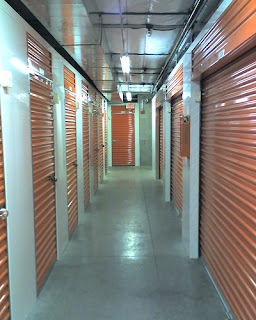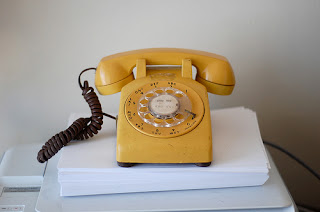Top Ways to Profit from Storage Auctions
 Photo: Tim Patterson
Photo: Tim PattersonPeople rent space in self-storage facilities for a number of reasons. They may have too much stuff, be in between moves, have lost their homes, have been deployed for military duty, or be college students who have moved out of their dorms and are living with their parents for the summer.
Sometimes people stop paying their rent on these spaces and the facilities auction off the contents. Storage facilities don’t make money on units they can’t rent out, and they have ongoing overhead costs like personnel, property taxes, insurance and utilities. These self-storage facilities contain hundreds of units, so at any given time there’s a good chance that some renters are in default and the contents of their lockers headed to auction.
Laws vary by state, but usually a certain amount of time must have passed without payment (such as 30 to 90 days) and/or the renter must be delinquent by a certain dollar amount. The owner must be notified, and the auction is considered a last resort.
For the average person, these auctions represent a money-making opportunity. It's not as simple or as glamorous as it looks on TV, but the average person can learn how to implement the same skill sets as the characters on Storage Wars to earn their own profits from treasure hunting. Here are some tips for earning a profit.
-Know your competition. Some of the best in the business have a lifetime of experience. American Pickers’ Wolfe began picking when he was just four years old. Don't try to compete with or outdo the professionals. Just try to do the best you can with your own budget and skill set. Expect to make some mistakes and realize that it will take time to hone your skills.
-Leave your ego at home. Don't get caught in a bidding war because you don't want to let the other person win. You're not going to win every unit you bid on. Stick to your budget. Set spending limits ahead of time both for the day and for individual units.
-Put a price on your time. Cashing in on other people’s loot takes a lot of time. You have to find the auction, attend the auction, load up and haul away all the stuff, unload it and sort through it. Then you might have to drive some of it to different parts of town to get it appraised, sold and disposed of. You also have to clean items before selling them, research values, price and sell items, and do all the tedious bookkeeping and administrative work associated with buying and selling the stuff.
If you don't put a price on your time, you can spend much more time than you should on these activities--time that could be more profitably spent on another activity. It's normal to not be very efficient when you're just starting out, but at some point you'll have to decide whether the time you spend on storage auctions is worth the profit you're earning. Without a lucrative television contract, you’ll be entirely reliant on your buying and selling skills to turn a profit from what appears to be junk.
-Buy to learn. If you have a hunch about what might be hidden in a locker based on what you can see, you're not going to learn if you're right or wrong unless you buy that unit. The more times you make these guesses, the better you'll get. For a lower-risk strategy, let someone else win the locker, then try to find out from them what was in it and how much profit they made.
-Don't feed your collecting habit. You won’t earn a profit if you hang on to your finds. Also, just because you think something is cool doesn't mean it's going to be worth a lot.
-Don't throw money away. Donate less valuable items rather than throwing them out; get a receipt and deduct the donation on your tax return. For valuable items, get them authenticated to get top dollar. For example, a comic book with a high grade from a certified comic book grader typically fetches an exponentially higher price on the aftermarket than the same book in similar condition without professional grading. The emergence of the Certified Guarantee Company (CGC) as the industry leader in professional grading has further enhanced the value of graded comics; CGC-graded comics often sell for amounts many times the value of an ungraded comic.
-Learn the art of bidding. If you watch Storage Wars' Dave Hester carefully, you’ll notice that he bids strategically. He’ll wait until the auction appears to be almost over—in other words, until all but one person have bowed out—and then he’ll start bidding. This may prevent him from bidding the prices up on himself by participating earlier in the auction. He also waits until the last possible second to bid—slowing down the auction can help keep the final price down.
For more tips, read my Financial Edge article for Investopedia, Top Ways to Profit from Storage Auctions.
Also read my previous blog posts, How to Find Public Self-Storage Auctions and What to Bring to a Self-Storage Auction and Why.


Comments